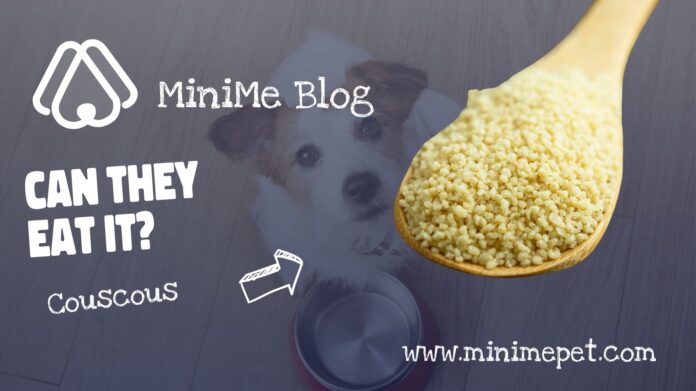Is couscous good for dogs? The short answer is yes – couscous can be a safe and nutritious addition to your dog’s diet when served plain and in moderation This tiny pasta made from semolina wheat provides some beneficial nutrients but should be given thoughtfully,
Understanding Couscous and Its Benefits
Before feeding any new food to your furry friend, it’s important to understand what it is Couscous is a traditional North African dish made from tiny steamed balls of crushed durum wheat semolina. As discussed on Pet like boss, introducing new foods to your dog’s diet requires careful consideration
Nutritional Benefits of Couscous for Dogs
When properly prepared, couscous offers several nutritional benefits:
- Rich in protein and fiber
- Contains essential B vitamins
- Good source of selenium and potassium
- Low in fat
- Provides steady energy
How to Safely Feed Couscous to Your Dog
If you’re wondering “is couscous good for dogs” in terms of serving here are some important guidelines
-
Start Small
- Introduce tiny amounts first
- Watch for any adverse reactions
- Mix with regular dog food
-
Proper Preparation
- Serve plain, without seasonings
- Cook thoroughly in water
- Allow to cool completely
For more detailed information about dog nutrition and safe foods, check out our comprehensive dog care guide.
Potential Risks and Considerations
While couscous can be beneficial, there are some important considerations:
Wheat Sensitivity
Some dogs may have wheat allergies or sensitivities. Signs include:- Itching- Digestive issues- Skin problems
Portion Control
Couscous should not replace your dog’s regular food. Consider it as an occasional treat, making up no more than 10% of their daily caloric intake.
Alternative Grain Options
If your dog can’t tolerate couscous, consider these alternatives:- Brown rice- Quinoa- Oatmeal- Sweet potatoes
When to Avoid Couscous
Avoid feeding couscous to your dog if:- They have known wheat allergies- Are on a grain-free diet- Show signs of gluten sensitivity- Have diabetes (due to high carb content)
Tips for Serving Couscous
Here’s how to make couscous more appealing and safe:1. Mix with lean protein2. Add dog-safe vegetables3. Use as a training treat4. Incorporate into homemade dog meals
Expert Recommendations
Veterinary nutritionists suggest:- Limiting grain portions- Monitoring digestion- Choosing whole grain options- Avoiding flavored varieties
Common Mistakes to Avoid
When feeding couscous to dogs, avoid:1. Adding seasonings or spices2. Serving with butter or oil3. Mixing with harmful ingredients4. Overfeeding
Signs Your Dog Enjoys Couscous
Positive indicators include:- Eager eating- Normal digestion- Maintained energy levels- No allergic reactions
The Bottom Line
In conclusion, couscous can be good for dogs when served properly. It provides useful nutrients and can be a healthy addition to their diet. However, moderation is key, and you should always consult with your veterinarian before introducing new foods.
FAQs About Feeding Couscous to Dogs
Can puppies eat couscous?
While not harmful, puppies should stick to their specialized puppy food for proper development.
How often can I feed my dog couscous?
1-2 times per week as a small portion is generally safe for most dogs.
What if my dog eats seasoned couscous?
Monitor them for adverse reactions and contact your vet if concerning symptoms develop.
Can diabetic dogs eat couscous?
It’s best to avoid couscous for diabetic dogs due to its carbohydrate content.
Remember, every dog is different, and what works for one might not work for another. Always observe your pet’s reaction to new foods and consult with your vet when in doubt. For more expert pet advice and tips, visit Pet like boss for comprehensive guides on pet care and nutrition.
This guide aims to help you make informed decisions about including couscous in your dog’s diet. While it can be a healthy addition, responsible serving and careful monitoring are essential for your furry friend’s wellbeing.












